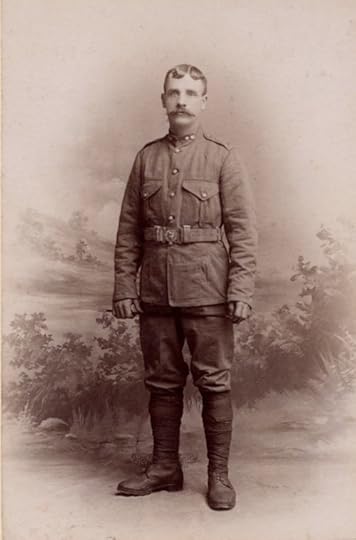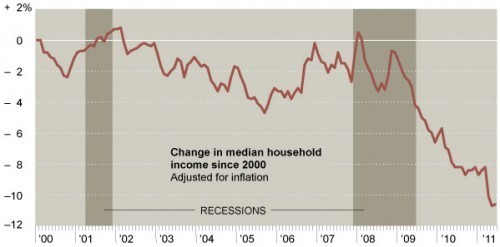Bodhipaksa's Blog, page 82
November 29, 2011
The science of lovingkindness
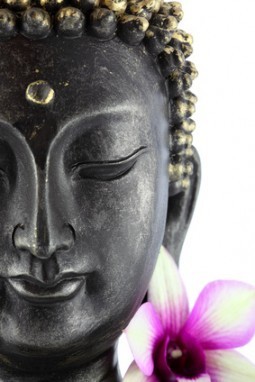 Right at the very beginning of my meditation practice I was introduced to both mindfulness of breathing and the development of lovingkindness meditation. It was explained to me that both of these practices were equally important, that they were complementary, and that alternating these practices prevented imbalance in our approach. It was stressed, in fact, that sometimes lovingkindness practice is more important than mindfulness practice — especially for people who have a tendency toward being angry or over-critical.
Right at the very beginning of my meditation practice I was introduced to both mindfulness of breathing and the development of lovingkindness meditation. It was explained to me that both of these practices were equally important, that they were complementary, and that alternating these practices prevented imbalance in our approach. It was stressed, in fact, that sometimes lovingkindness practice is more important than mindfulness practice — especially for people who have a tendency toward being angry or over-critical.
I've never had cause to doubt any of that advice.
There are many meditators, however, who only practice mindfulness meditation, and often lovingkindness practice is seen as second-best. Generally in western Buddhist practice, there is a heavy emphasis on particular forms of mindfulness meditation. And no doubt because of this arguably narrow emphasis, that's the form of Buddhist meditation that's been most commonly studied in the burgeoning research on the effects of meditative practice.
But beside mindfulness there are traditionally many forms of meditation practice, with one common list — the kamma??h?nas (literally "places of work") including no less than forty forms of meditation. And in the Buddhist scriptures generally, there is a heavy emphasis on lovingkindness (mett?) meditation, especially as part of the four brahmavih?ras, or sublime abodes.
Lovingkindness, fortunately, is becoming better known, and researchers are now studying the effects of practicing that form of meditation, showing that they positively affect health and well-being.
Here are a few highlights:
A study done at Stanford University used a brief lovingkindness meditation exercise to examine whether social connection could be created toward strangers in a controlled laboratory context. Compared with a closely matched control task, even just a few minutes of lovingkindness meditation increased feelings of social connection and positivity toward strangers on both conscious and unconscious levels.
A Duke University Medical Center pilot study tested an eight-week lovingkindness program for chronic low back pain patients. Patients were randomly assigned to practice lovingkindness or were given standard care. Standardized measures assessed patients' pain, anger, and psychological distress. There were significant improvements in pain and psychological distress in the lovingkindness group — even after the study had ended. There were no improvements in the usual care group. An analysis of patients' diaries showed that more lovingkindness practice on a given day was related to lower pain that day and lower anger the next day.
Researcher Barbara Fredrickson at the University of North Carolina at Chapel Hill took working adults and assigned them randomly to a lovingkindness meditation group or to a control group. Her study found that lovingkindness practice increased daily experiences of positive emotions, which in turn produced increases in a wide range of personal resources, including increased mindfulness, a sense of purpose in life, social support, and decreased illness symptoms. These increments in personal resources predict increased life satisfaction and reduced depressive symptoms.
In a study by Richard Davidson, scans revealed significant activity in the insula – a region near the frontal portion of the brain that plays a key role in bodily representations of emotion – when long-term meditators were generating compassion and were exposed to emotional vocalizations. The insula is extremely important in detecting emotions in general and specifically in mapping bodily responses to emotion – such as heart rate and blood pressure – and making that information available to other parts of the brain.
The same study showed increased activity in the temporal parietal juncture, particularly in the right hemisphere. Studies have implicated this area as important in processing empathy, especially in perceiving the mental and emotional state of others.
Compassion meditation has been shown to reduce reactions to inflammation and distress. An Emory University study showed a strong relationship between the time spent practicing meditation and reductions in inflammation and emotional distress in response to stress. Those who practiced the most meditation showed reductions in inflammation and distress in response to stressors when compared to the low practice group and the control group. As one of the researchers noted, "If practicing compassion meditation does reduce inflammatory responses to stress it might offer real promise as a means of preventing many conditions associated with stress and with inflammation including major depression, heart disease and diabetes."
A review by researchers in the US and Germany suggested that Lovingkindness and compassion meditation "may provide potentially useful strategies for targeting a variety of different psychological problems that involve interpersonal processes, such as depression, social anxiety, marital conflict, anger, and coping with the strains of long-term caregiving."
In some of these studies, the benefits were revealed after only twelve hours of meditation. Hopefully future studies will reveal yet more about the power of lovingkindness and compassion meditation.
If you're interested in exploring lovingkindness practice in more depth, we have an extensive, free, self-paced guide, which includes audio guided meditations.
Related posts:
There's nothing to it and science agrees
Mindfulness meditation eases Irritable Bowel Syndrome, study finds
Introducing the Greater Good Science Center
November 23, 2011
Happy Thanksgiving
It's only Thanksgiving in the US, of course, but I hope it's a happy day for everyone.
I recently wrote a post on Wildmind on saying "Thank You" as a form of meditation practice. I've found it to be very effective in creating a sense of gratitude and joy.
Also, Cecilia, who was on a recent meditation and Buddhism course that I taught at Aryaloka Buddhist Center, was kind enough to post the following on her blog:
To Bodhipaksa: When I was struggling this last summer with some health concerns and feeling as though that recent brutal New England winter had done me in for good, I happened upon a CD of yours on Audible.com called Guided Meditations for Calmness, Awareness and Love. This became for me a beacon of light in a life that had long neglected a regular mediation practice. Feeling inspired, I knew I needed to find a place to meditate locally, much as I did in years long past at the Tibetan Buddhist Center of Philadelphia. So I sign up for a class and SURPRISE you are the teacher! I had no idea you lived in NH much less were so close as your Scottish accent led me to believe you lived far and away. So fate played a hand and I thank you for having the foresight and business savvy to provide your work with meditation in so many varied formats with or without the dogma for one and all to enjoy: most wonderful.
This kind of thing has been happening a lot recently. A few weeks ago I was in the office at Aryaloka, photocopying some handouts for a course I was leading. A woman, who had arrived early for a retreat that was starting later that day, came in to ask me a question, in the middle of our conversation she asked if I was Bodhipaksa. She'd been listening to one of my CDs for years, and recognized my voice. She'd no idea that I was connected with Aryaloka. It's a small world, but at the same time (and this isn't boasting, since in publishing terms these numbers aren't enormous) well over 100,000 people have legally purchased my books, CDs and MP3s, and I'd imagine that at least that number have (ahem) copies. Plus (and OK, there is a bit of boasting here) over a million people a year visit Wildmind. Every time I go out I probably see, and am seen by, people who have visited Wildmind, but of course I have no way to recognize them, and they have no reason to notice me.
Related posts:About Bodhipaksa
More writing
Moving towards enlightenment
Related posts brought to you by Yet Another Related Posts Plugin.
Marjory Tragham/Tragheim, née Duncan
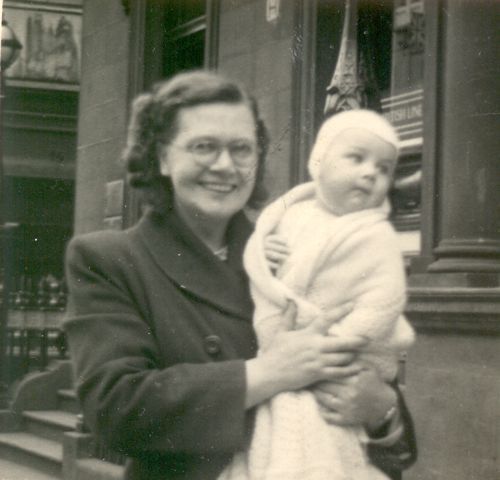
Today my grandmother, Marjory Tragham, née Duncan, would have been 100 years old.
She was born 1911, in Scoonie, Fife, Scotland. She died Sep 26, 1998, Dundee, Scotland.
We always called her "Nana." She was a lovely, lovely woman.
She's pictured here with my Uncle Alan, who's now 58. Since he's only a few months old in this picture, and since he was born on January 3, the picture must have been taken in 1953.
She was married twice. Her first husband, Alex Ritchie, died of TB, leaving her with a baby girl (my Aunt Margaret). She then remarried my Grandad, Thomas Tragheim, who later went by the name Tragham, since German surnames were unpopular during the war.
Related posts:Marjory Tragham
Marjory Tragham
Thomas Tragheim / Tragham
Related posts brought to you by Yet Another Related Posts Plugin.
November 20, 2011
The casual acceptance of violence and torture
The deliberate inflicting of pain is now being accepted by government as a way of keeping the population in line.
The use of pepper spray in wartime, we should be constantly reminding ourselves, is an official war crime. It's chemical warfare, and it's torture.
If these policemen were soldiers, and the students were citizens of a foreign country, those in uniform would be facing prison sentences for what they'd done. Why do police forces have the right to perpetrate with impunity what are effectively war crimes against their own people? Why do we accept this so easily?
From the Atlantic:
James Fallows: Pepper-Spray Brutality at UC Davis
In case you haven't yet seen the YouTube footage of what happened yesterday at UC Davis, here it is. The first minute has the main drama:
Let's stipulate that there are legitimate questions of how to balance the rights of peaceful protest against other people's rights to go about their normal lives, and the rights of institutions to have some control over their property and public spaces. Without knowing the whole background, I'll even assume for purposes of argument that the UC Davis authorities had legitimate reason to clear protestors from an area of campus — and that if protestors wanted to stage a civil-disobedience resistance to that effort, they should have been prepared for the consequence of civil disobedience, which is arrest.
Related posts:Giving the Chinese a hand with torture
GOP site calls for torture of Obama
Amazing Life Magazine Archive on Google
Related posts brought to you by Yet Another Related Posts Plugin.
November 19, 2011
Learning to love the flaws
 I recently published another article on Wildmind. It contains a lovingkindness practice that I've found very effective.
I recently published another article on Wildmind. It contains a lovingkindness practice that I've found very effective.
As I wrote in my most recent book, Living as a River:
Relating to someone as a "self"—on the basis of how we see them right now—is like seeing a video reduced to a single frame, or seeing a ball hurtling through the air in a freeze-frame photograph. It's life-denying. It's a static way of seeing things. In taking a snapshot of a thing we lose its sense of trajectory, the sense that it's headed somewhere. We're disconnected from the reality of change and process. But imagine if we could consistently see a person not as a thing but as a process—if we could, at least in our imagination—see that person …
Related posts:Learning happiness
Moving everything to the blog
Nothing's personal
Related posts brought to you by Yet Another Related Posts Plugin.
November 11, 2011
Honoring family veterans
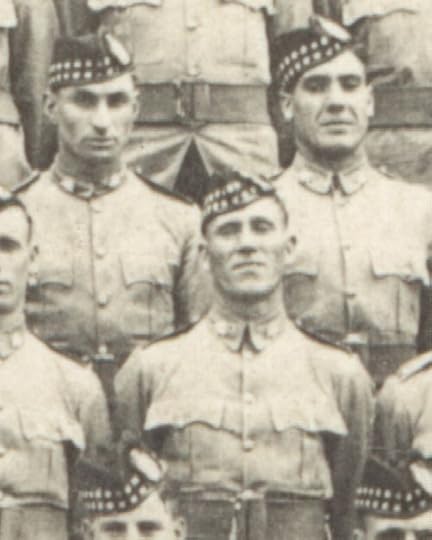
This is my grandfather, Robert Drummond Stephen (my dad's dad) who I never met, because he died in an accident when my dad was still young. I believe he served in the Gordon Highlanders and Kings own Scottish Borders, and I know he was in Egypt and Hong Kong in the 1920s. He served in WWII.
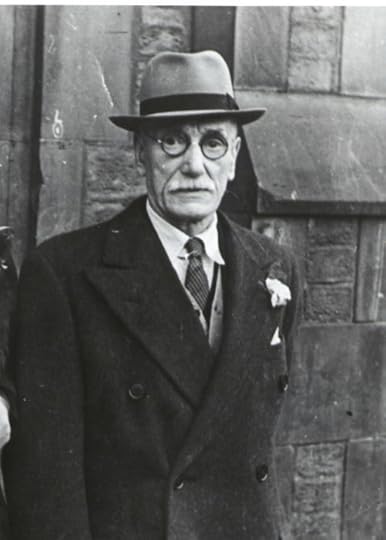
This is Robert's father, Lewis Stephen. I believe he served in the Gordon Highlanders in the Boer War.
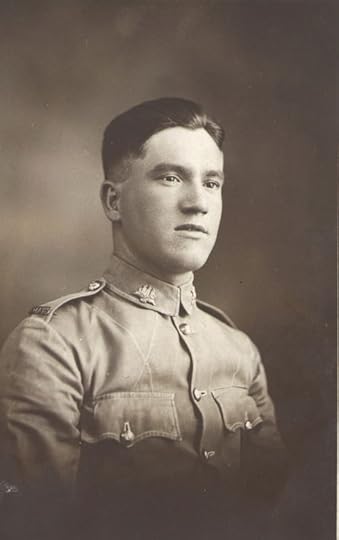
This is my great uncle Lewis, who was Robert's brother.
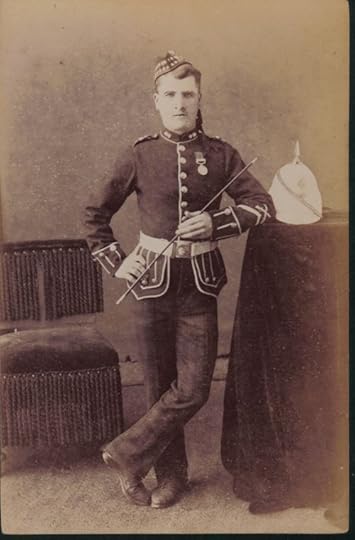
This is my great great grandfather, Peter Wallace, who moved to Scotland from Ireland. I don't know anything yet about his military service. (He was my dad's mum's dad's dad!)
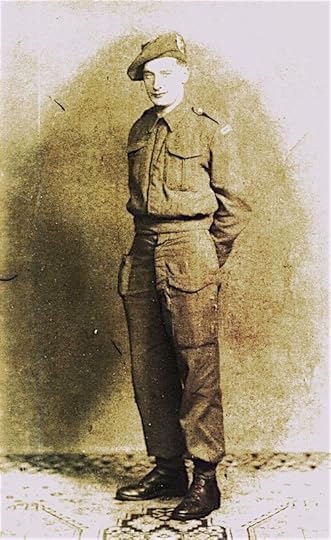
Leslie Wallace, on my dad's mum's side.
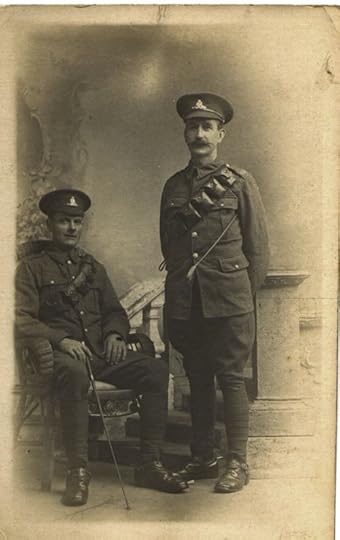
William Taylor Lickley (right), was the brother of my great great great grandfather, Leslie Lickley.
Now moving over to my mother's side of the family…
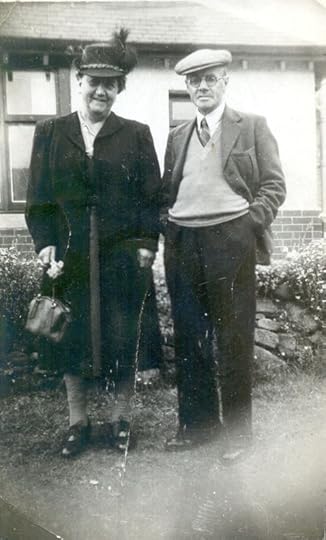
This is my great grandparents (my mum's dad's parents). I knew them both. Edward Tragheim served in the Boer War and in the First World War, where he was gassed and left blind.
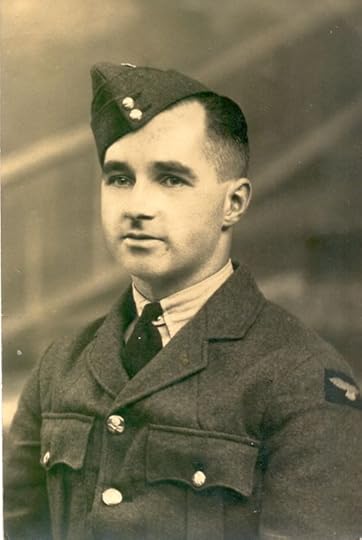
Edward Tragheim's son, also called Edward. He was my great uncle.
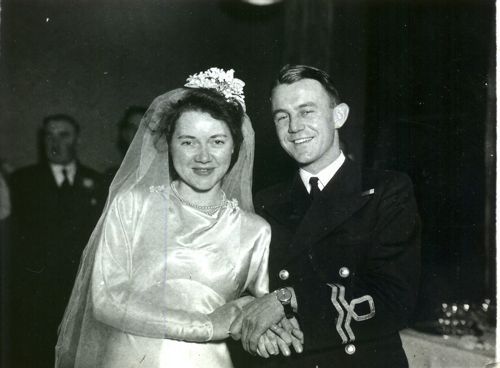
This is my great aunt Lily, who is still alive, and her husband, Robert Jaunay. Robert was in the navy, and I believe Lily was as well. She's still alive and I must get in touch with her.
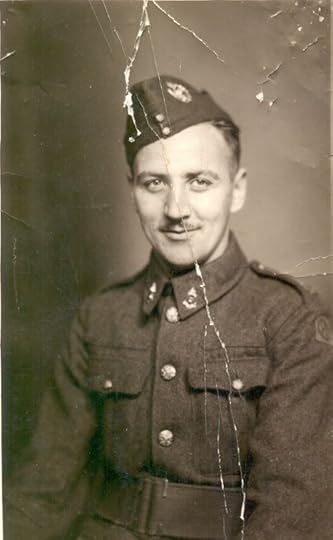
This is my mum's mum's brother, Albert Duncan.
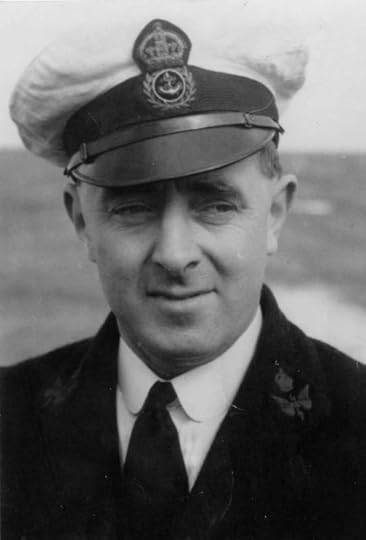
A more distant relative, Alexander Tragheim. He was a Royal Navy radio operator who died when his ship was sunk.
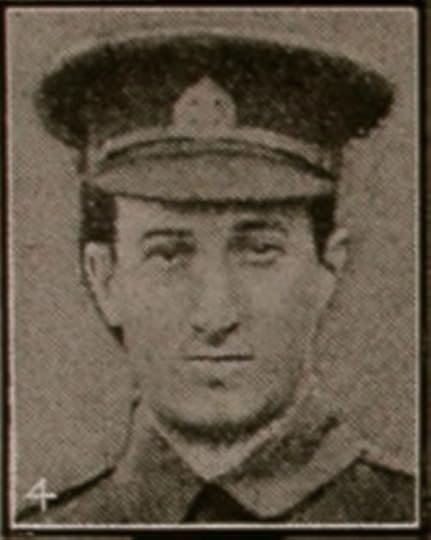
Another more distant relative, Edgar Tragheim, who died in Flanders in WWI.
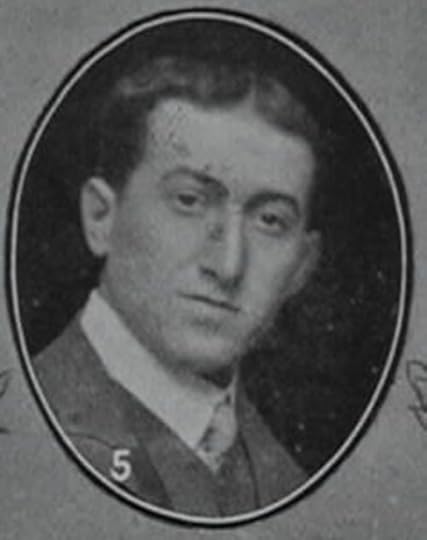
Ernest Tragheim, a talented chemist, who died also died in WWI.
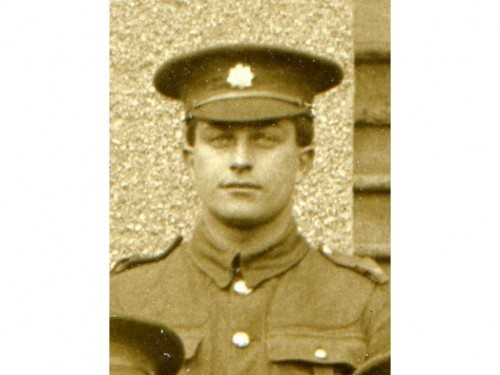
Edward James Tragheim in his Devonshires Regiment uniform. Died 1918 in Flanders.
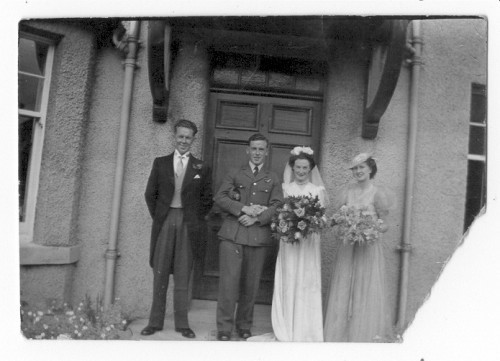
Edward Alfred Tragheim, RAF, who died on a training mission in WWII.
This is by no means comprehensive.
Related posts:Wordless Wednesday 06/04/08
Wordless Wednesday: Meet Edward and Jane
Meet Edward and Jane, a few years on
Related posts brought to you by Yet Another Related Posts Plugin.
November 9, 2011
Getting rid of resentment
 Another article I published on Wildmind:
Another article I published on Wildmind:
Ann Lamott, in her novel Crooked Little Heart, says that holding onto resentment is like eating rat poison and waiting for the rat to die.
Resentment is seductive. We assume on some level that it's going to help us, but it doesn't. It just causes us pain.
This is something that just about all of us need help with.
1600 years ago, a compiler and commenter of Buddhist texts called Buddhaghosa, put together an extraordinary "tool kit" of ways to deal with resentment. I was recently looking at this and thought it was so apt and well thought-out that it was worth putting out …
Related posts:Kulananda (Michael Chaskalson) on mindfulness
"Who will rid me of this troublesome candidate?"
Geeky goodness
Related posts brought to you by Yet Another Related Posts Plugin.
November 8, 2011
The power (and pitfalls) of criticism
 I published another article on Wildmind:
I published another article on Wildmind:
From time to time people write to me with interesting questions or observations. Often, the less time they've been practicing Buddhism and meditation, the more interesting the questions are. As Suzuki Roshi said, "In the beginner's mind there are many possibilities, but in the expert's there are few." (I don't think Suzuki is entirely right here, but he's certainly not entirely wrong either).
The other day a fellow called Boon wrote to me from England. He'd been reading the Dhammapada, which is one of the most ancient Buddhist texts, written in an archaic form of the Pali language. He'd been wondering about criticism, and its role in spiritual practice. He'd seen passages …
Related posts:Power of prayer flunks an unusual test
The Dhammapada and vegetarianism
Creative captcha
Related posts brought to you by Yet Another Related Posts Plugin.
October 21, 2011
Sitting without a sitter
I just published an article on Wildmind. I keep forgetting to mention them here!
When I was on my first ever meditation retreat — two weeks of intensive meditation in the Scottish Highlands — I'd sometimes hear the instruction, "And now we'll just sit." No further instruction was given! And we'd sit there for a period of time — maybe ten minutes, maybe thirty minutes.
It was at first deeply confusing. I was sitting there waiting for further instruction. I wanted to be told what to do. Then I'd get bored and restless. Thoughts would come and go and I'd get caught up in them.
As the retreat went on sometimes those thoughts would begin to clear, and the mind would become …
Related posts:Kind words for my audiobook, "Still The Mind"
My new publication comes out tomorrow!
Does language change the way we think?
Related posts brought to you by Yet Another Related Posts Plugin.
October 10, 2011
The economy grows, the people get poorer
In every quarter since the recession officially ended in June 2009, the economy has grown. And yet ordinary Americans are still getting poorer, while the gap between the richest and the poorest still continues to grow. We need an economy that works for everyone, not just the rich.
The graph is from this article in the NYT.
Related posts:See how Obama is destroying the US
Obama is still destroying the US!
Pretty (scary) graph
Related posts brought to you by Yet Another Related Posts Plugin.

